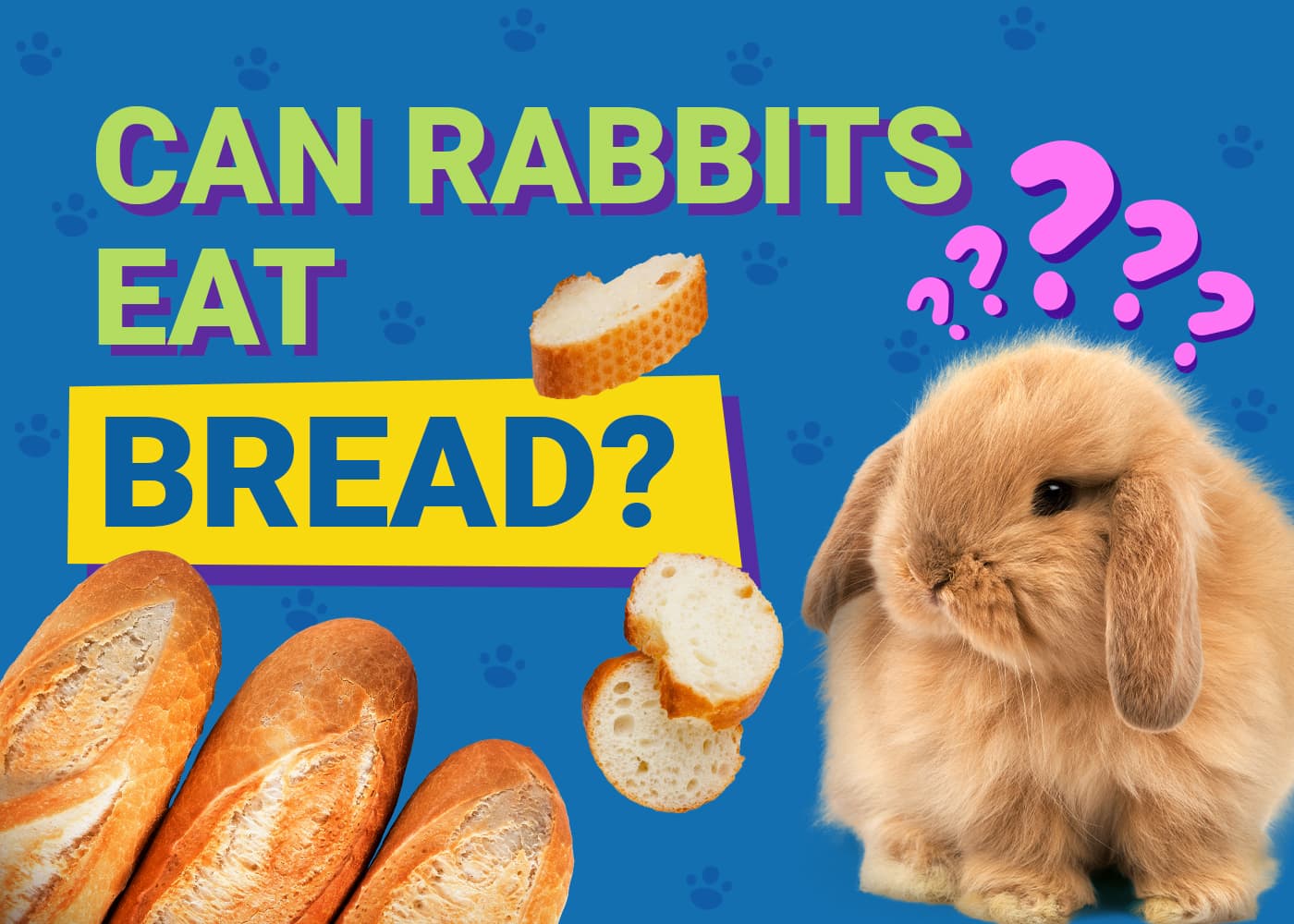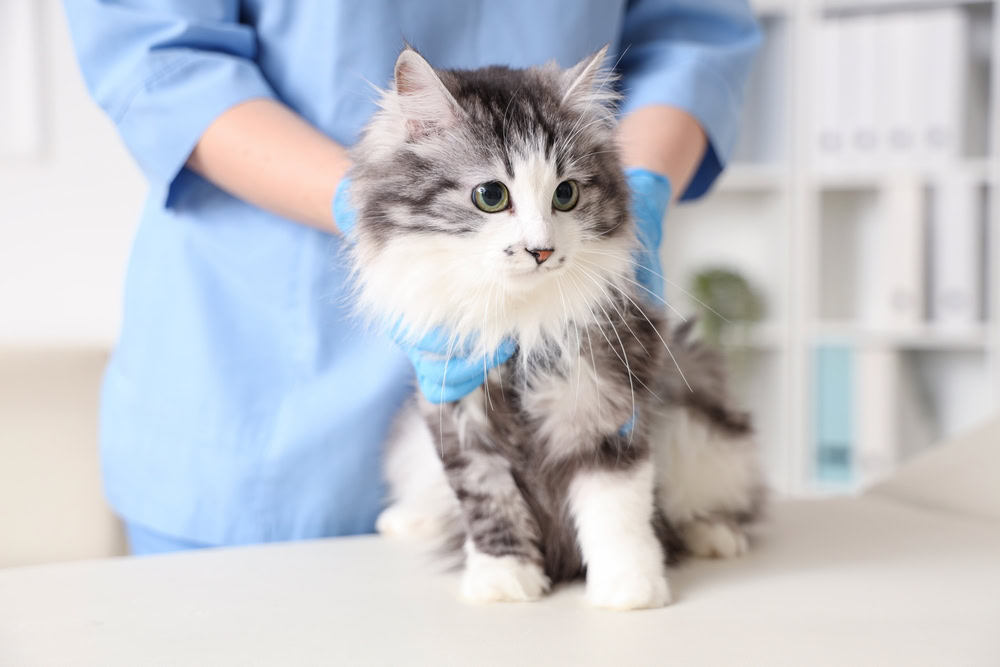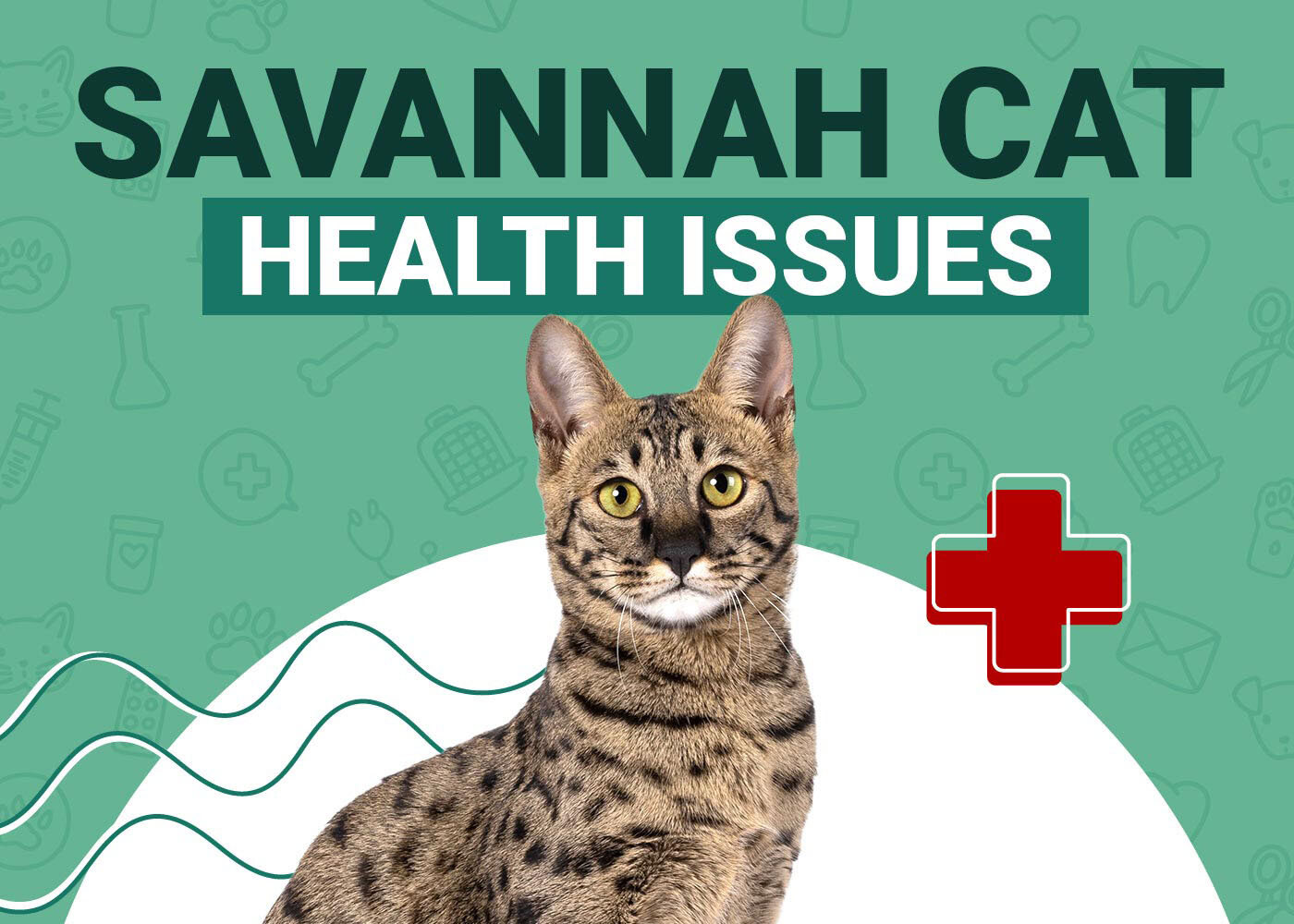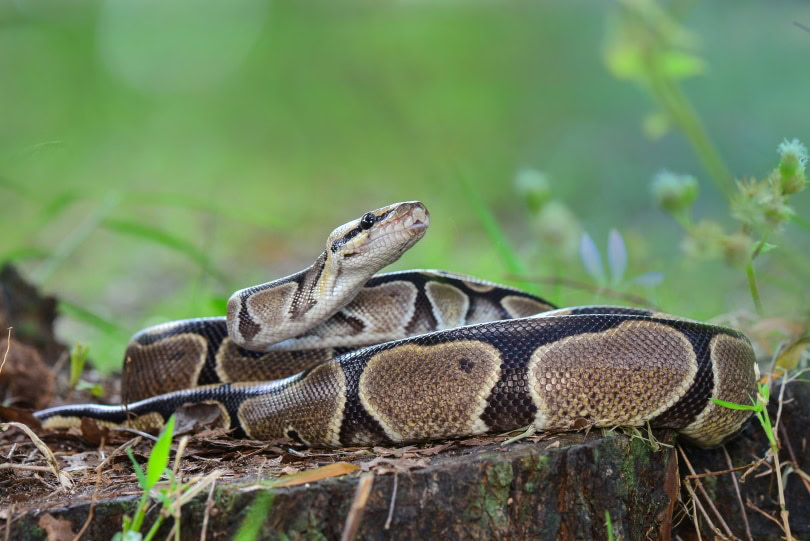VET APPROVED

The information is current and up-to-date in accordance with the latest veterinarian research.
Learn more »Click to Skip Ahead
Humans have been eating bread for thousands of years, and the love affair continues today. Bread is a food that is eaten all over the world. Meanwhile, rabbits are known for their love of vegetables, but can they also eat bread? The answer to this question is no, they should not.
Rabbits can technically eat bread because it’s not toxic, but they really shouldn’t, as it’s just not suitable for them. Bread is high in sugar and carbohydrates, which will cause digestive health problems in rabbits, so it’s better to avoid it.

What Is in Bread That Might Be Bad for Rabbits?
For humans, bread is loaded with nutrients that our bodies need. Bread is a great source of carbohydrates, fiber, protein, and B vitamins, all of which are essential for good health. However, bread is not a recommended food item for rabbits due to the fact that it is high in carbohydrates. This can lead to gastrointestinal problems for rabbits, as it will result in a change of the rabbit’s cecum pH, causing a disturbance of the local fermenting bacteria population and resulting in colics, dysbiosis, and even putting the rabbit at risk of developing a life-threatening condition known as gut stasis. Additionally, some bread contains ingredients (e.g., milk, eggs, butter) that are not suitable for rabbits, adding to the risk of digestive disturbance.
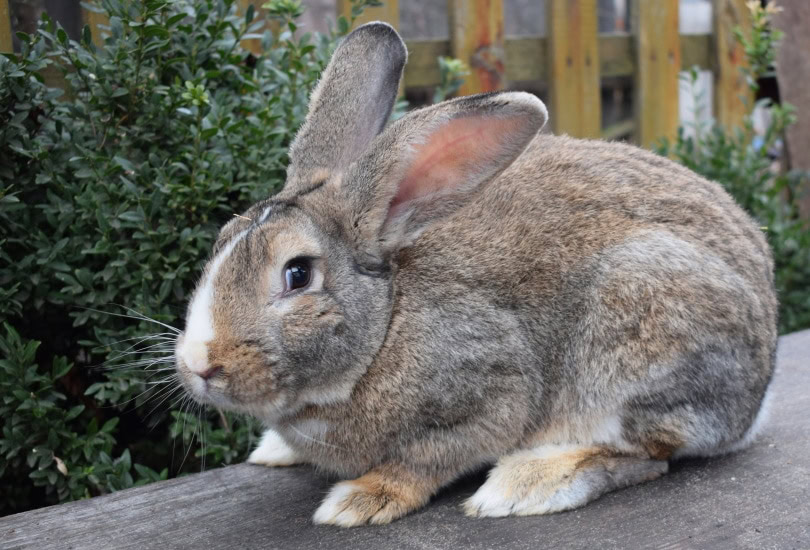
Avoiding Highly Processed Carbs
We humans love convenient, highly processed foods that barely resemble the ingredients they’re made from. You should never share a bread roll or baguette with your rabbit, even if it seems like a great bonding opportunity.
A high carbohydrate and sugar content in processed bread can cause digestive upset, abnormal stools, abdominal discomfort, and dysbiosis (or gut bacterial imbalance) in rabbits. It also increases the risk of painful colic and gut stasis. Try offering your furry friend a small number of appropriate fruits or a nutritionally appropriate treat if you want to share a snack, but please keep in mind that only 5% of their food should come from fruits.
Avoiding Animal Proteins
When it comes to bread, eggs and dairy are common ingredients because they add structure and flavor. Eggs, for example, can be used to enrich or leaven breads and help them rise, while dairy products like butter or milk contribute moisture and flavor. That said, not all breads contain eggs and dairy; there are plenty of vegan and gluten-free recipes out there.
As herbivores, rabbits should never be fed animal proteins. The gastrointestinal tracts of rabbits are designed specifically for breaking down low-fat and high-fiber vegetation. Rabbits tend to love sweet things and sweetened dairy-rich bread might be enticing to them. The occasional sweet, dairy-rich treat may seem harmless, but it can immediately, or over time, cause gastrointestinal discomfort and significantly raise the risk of dysbiosis and other health problems.
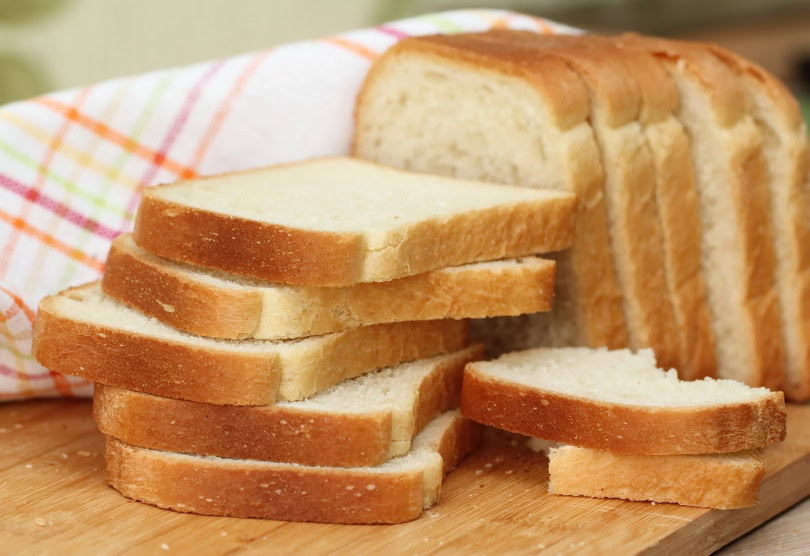
Other Possible Toxic Ingredients in Bread That Could Harm Rabbits
Bread is a simple food, but it’s also versatile and satisfying. For us, its inventors, there are endless ways to enjoy it, from a basic slice of toast to a complex, multi-layered sandwich. Bread can be eaten plain or with toppings such as cheese, ham, or vegetables. And bread is often made with mix-ins, which can include ingredients that are problematic for rabbits. Additionally, breads can be topped with spreads or sauces, which can contain ingredients that rabbits cannot digest. These additions can add flavor and texture to the bread, making it a more enjoyable eating experience for us, but more of a risk for our furry companions.
If your bread has mix-ins or toppings, there are a variety of foods that are toxic for rabbits and should be avoided. These include but are not limited to chocolate, apple seeds, avocado, rhubarb, onion, garlic, and caffeine. These items can cause serious health problems in rabbits and can even be fatal. It is important to always check with a veterinarian before giving your rabbit any new food to make sure it is safe. But as a general rule, avoid feeding your rabbit any man-made, processed food unless it is a rabbit pellet.

Is There a Way to Feed Bread to Rabbits Safely?
If your rabbit has eaten a small amount of plain bread they found on the floor, there is no need to panic. They may experience a little gastrointestinal upset and should be monitored closely, but they will hopefully be fine. Keep a close eye on them, though, especially monitoring their defecation, water and food consumption, and pseudo-rumination. Make a vet appointment if you have any concerns about the health of your rabbit. In general, however, it is recommended that bread not be given to rabbits.
Why Will Rabbits Eat Bread If It Is Bad for Them?
The bunny is a creature that spends most of their time grazing and, in essence, they eat as much as they can. It is quite likely that they will eat any food item that they find in front of them that is edible. It would be difficult for them to distinguish which food is good for them and which is not unless it has a strong or bitter flavor. They may well eat a piece of bread if you give them one.
What Can I Feed My Rabbit?
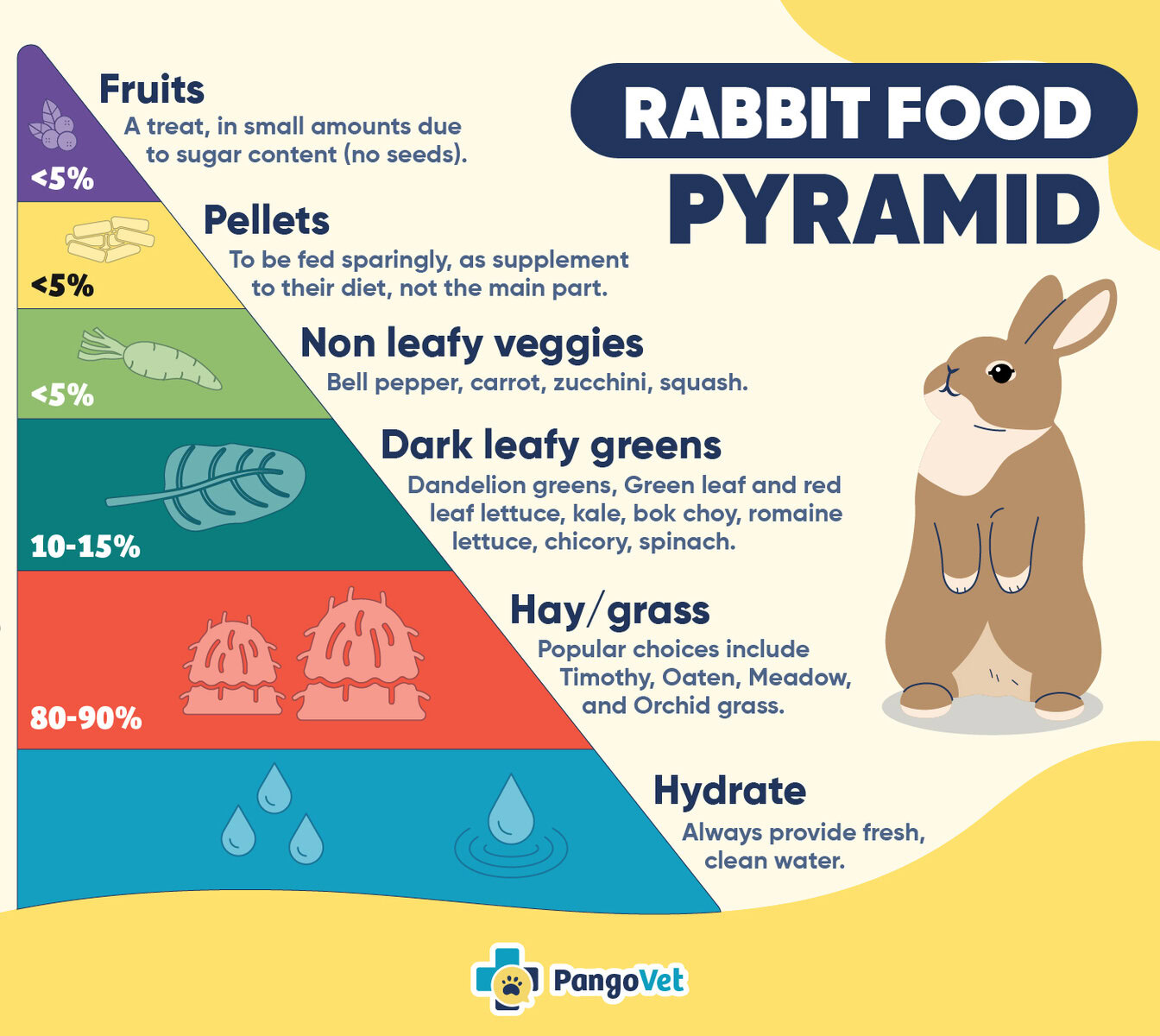
There are a variety of food items that can be safely fed to rabbits, including hay, fresh vegetables, and pellets made for rabbits. It is important to feed your rabbit a variety of these items in order to ensure that they get the correct balance of nutrients. Fresh vegetables and fruits are a great source of nutrients for rabbits, and they should be given a variety of different types to eat.
Hay is extremely important for rabbits because it helps them wear out their teeth and keeps their digestion working as intended. The Rabbit Welfare Association and Fund recommends that a rabbit’s diet should be made up of 85% grass or good–quality hay, 10% dark leafy greens, and 5% extruded pellets. You can also include up to 5% of fruits used as treats.
How Do Rabbits Digest Food?
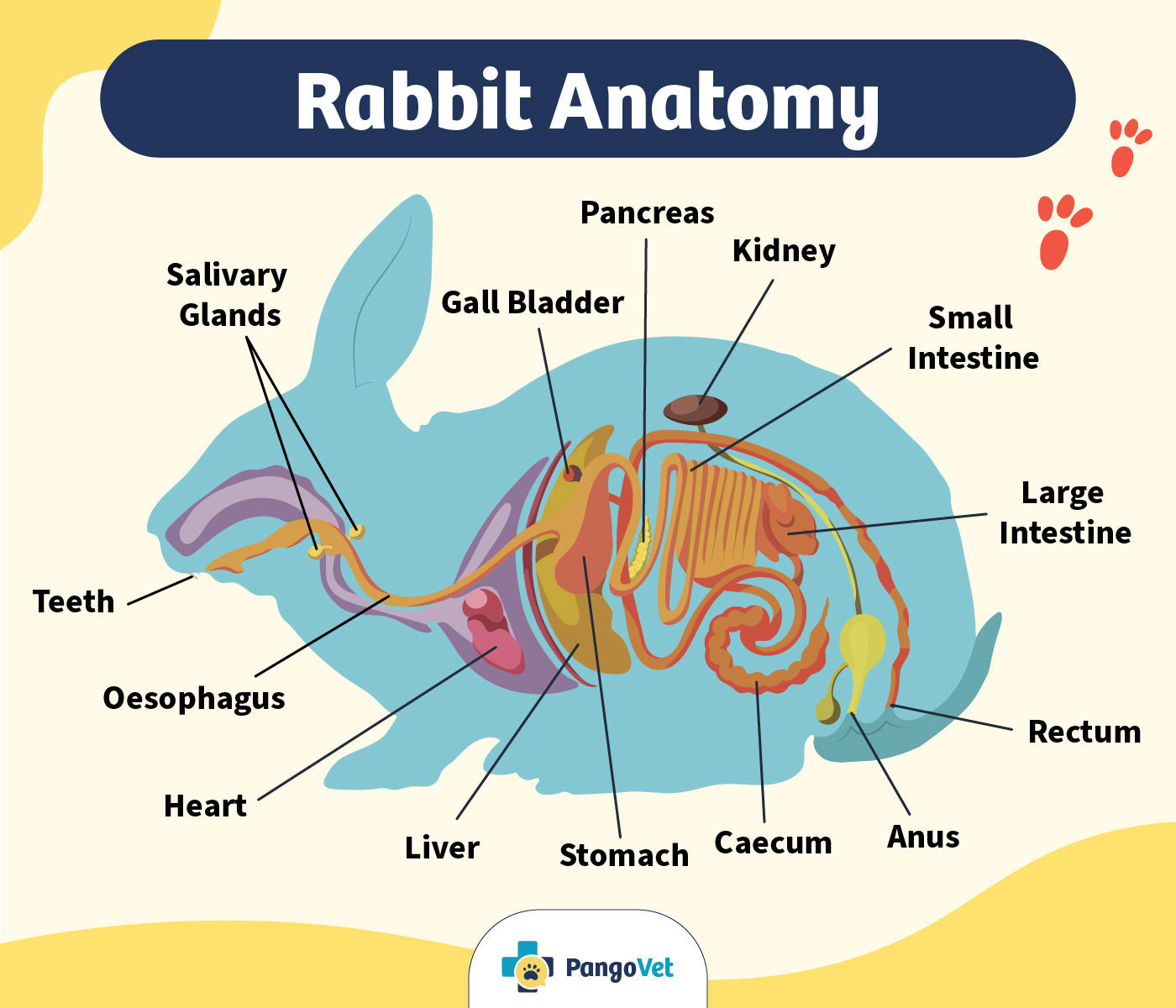
Rabbits are herbivores and their digestive system is specially adapted to digest cellulose, which is found in the cell wall of plants. The digestive tract of a rabbit is very long, allowing the animal to extract maximum nutrients from their food. Rabbits have continuously growing teeth to cope with the constant chewing of tough fibrous plant material. The cecum of the rabbit is especially important for their food’s digestion, as it contains specialized bacteria that ferment food in a way that allows for the absorption of essential nutrients. The bacteria that live in the cecum help to break down complex carbohydrates, proteins, and fiber, which all help to support the health of the rabbit.
By fermenting these nutrients, the bacteria in the rabbit’s cecum allow adequate nutrient digestion and absorption and helps to keep a healthy gut motility. There is no place for bread in this sensitive and highly cellulose-adapted system. It is in the best interest of the rabbit to ensure their gut buddies have the right conditions to preserve their symbiotic relationship, and this is done by ingesting the right kinds of foods and preventing the wrong ones.

Conclusion
The short answer to this question is no, rabbits should not eat bread. The long answer is a bit more complicated. Bread is relatively high in simple carbohydrates and, as such, can cause digestive problems for rabbits. If they nibble a bit they found on the floor, monitor their gastrointestinal health, and if you have any concerns, make sure you contact your vet. Rabbit emergencies can go very bad, very fast, so please do not wait it out if you find any reason for concern.
See also:
